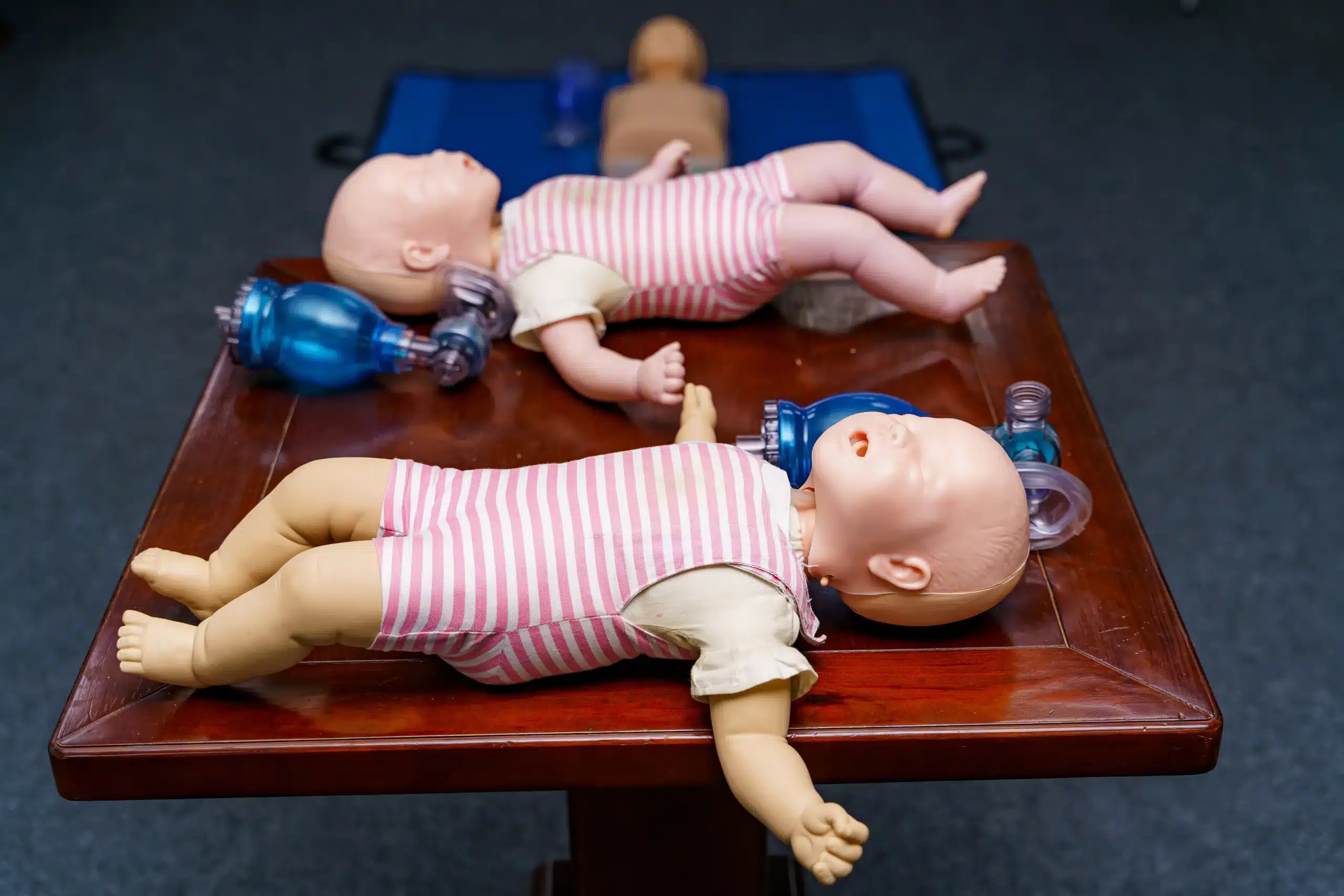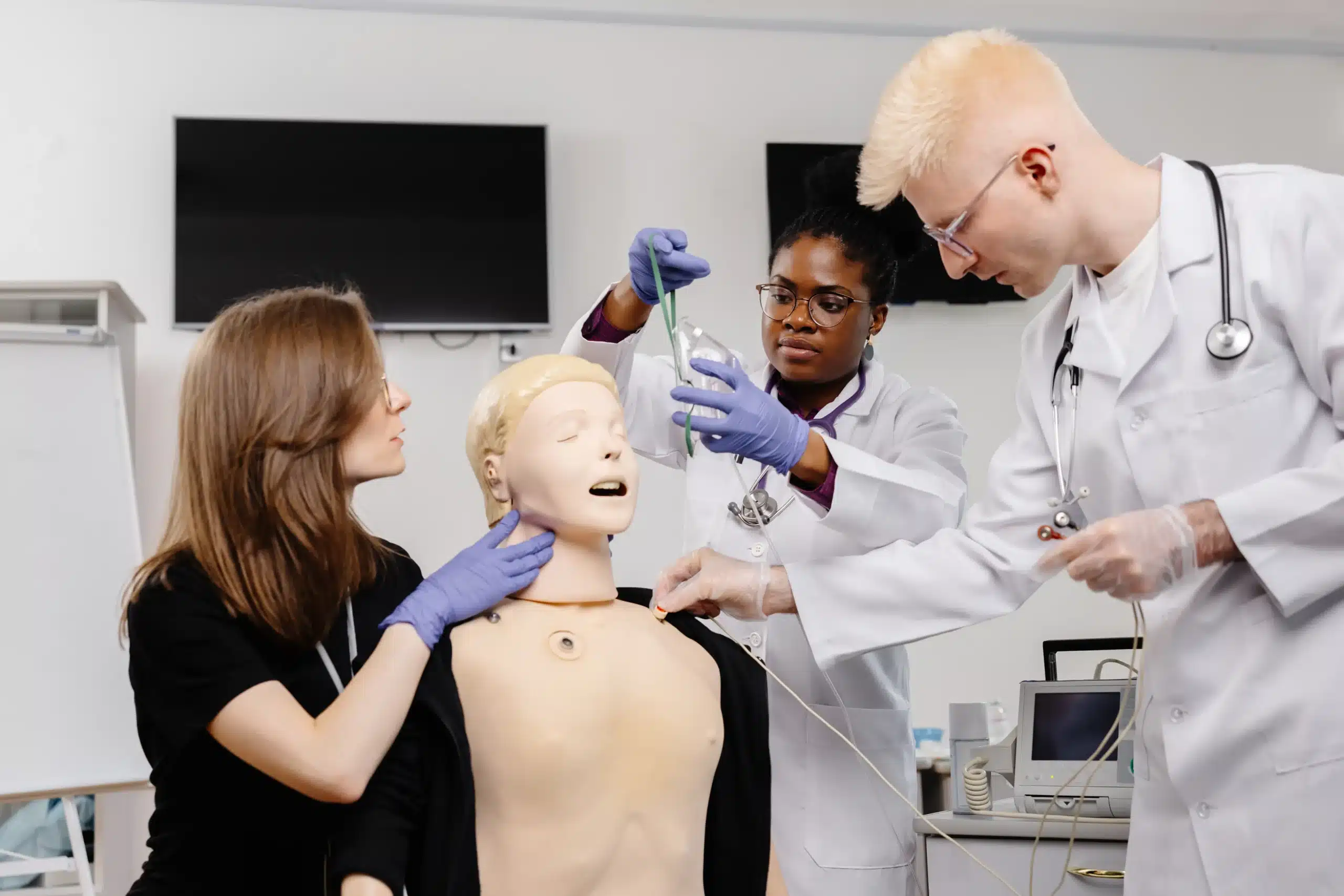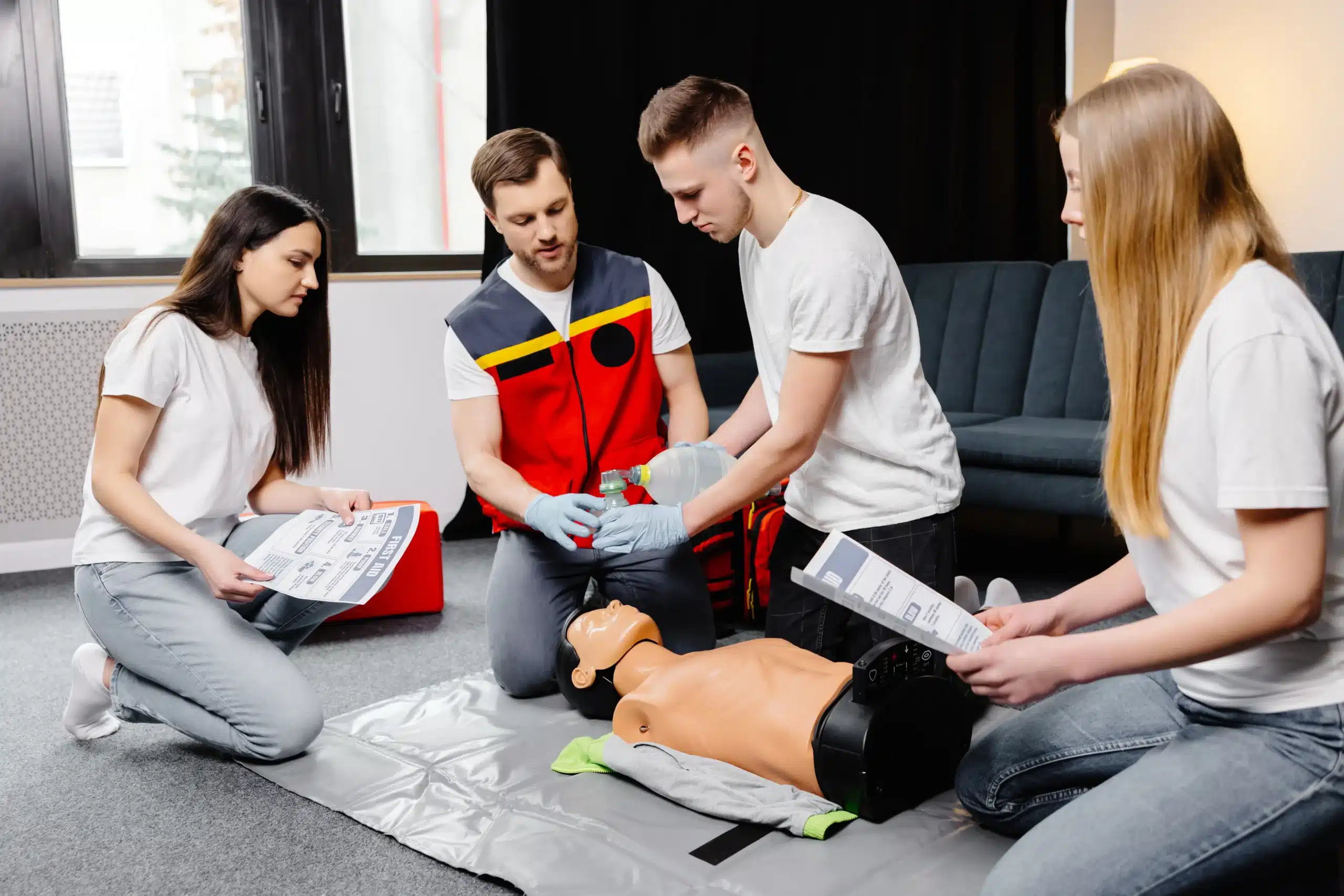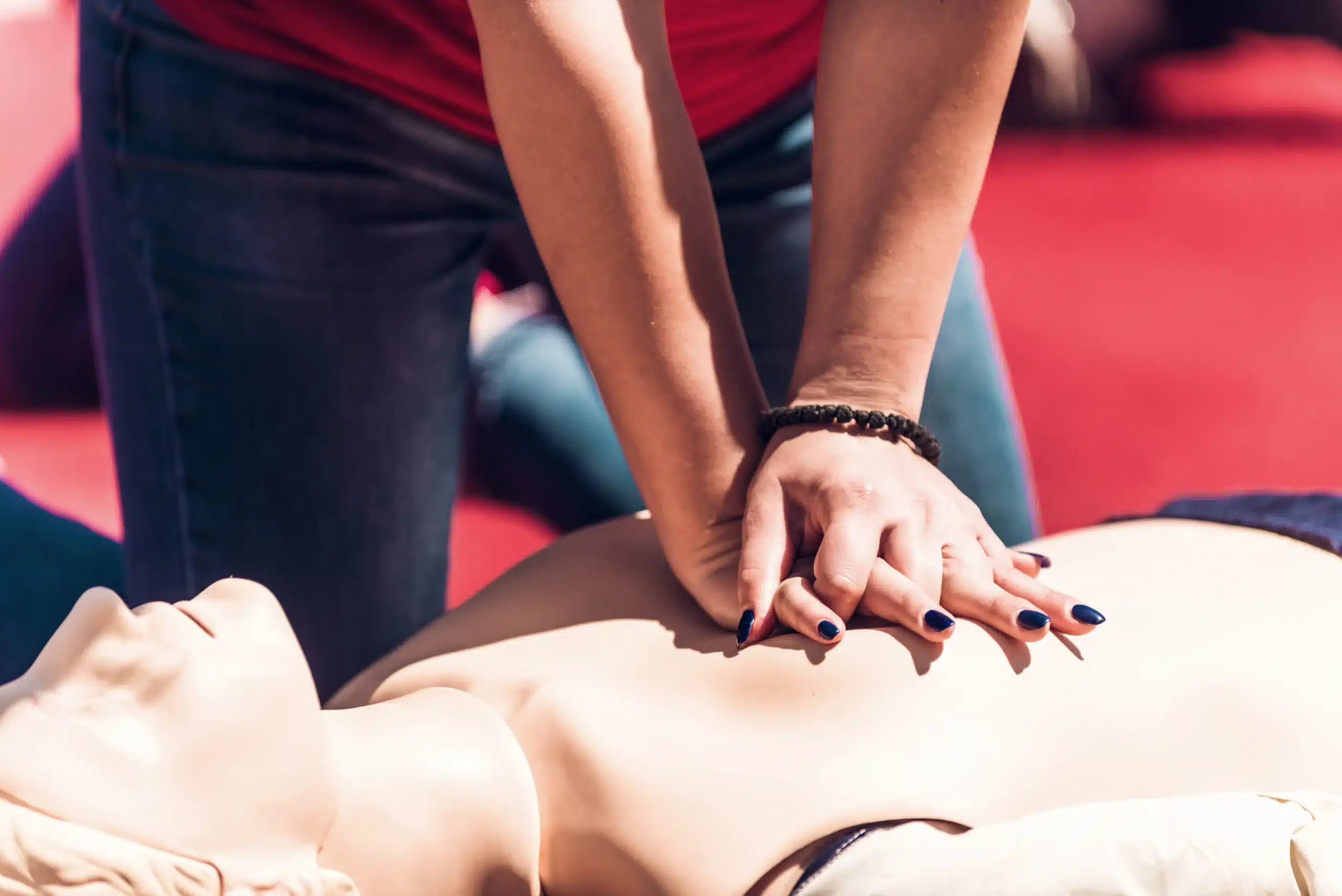Working in healthcare often means facing unexpected challenges, and when those challenges involve children, having the right training is absolutely essential. Pediatric Advanced Life Support (PALS) certification provides healthcare professionals with the specialized knowledge and skills to effectively manage pediatric emergencies. This training goes beyond basic life support, focusing on the unique needs of infants and children in critical situations. If you’re a healthcare provider in Petaluma, Rohnert Park, or Novato, finding a reputable provider of pediatric advanced life support in Petaluma is key to your professional development. This guide will cover everything you need to know about PALS certification, from course content and local providers to recertification options and practical tips for overcoming common training challenges. We’ll also explore the essential skills you’ll gain, common pediatric emergencies you’ll be prepared to handle, and how to best prepare for your PALS certification journey.
Key Takeaways
- PALS certification equips you with essential skills for pediatric emergencies: From assessment techniques to managing respiratory and cardiac events, PALS training provides the knowledge and hands-on practice needed to confidently care for critically ill infants and children.
- Find PALS training in Petaluma that fits your needs: Explore various options, including in-person, online, and blended learning formats, offered by providers like Safety Training Seminars. Consider factors like cost, schedule, and location when choosing a course.
- Stay current with PALS guidelines and best practices: Maintain your certification through renewal courses and continuing education opportunities to ensure you’re always prepared to deliver the best possible care in pediatric emergencies.
What is Pediatric Advanced Life Support (PALS)?
What is PALS and why is it important?
Pediatric Advanced Life Support (PALS) is a specialized training program that equips healthcare providers with the knowledge and skills to effectively manage pediatric emergencies. It’s crucial for anyone working with infants and children in a setting where they might need critical care, such as nurses, paramedics, respiratory therapists, and emergency room physicians. PALS training emphasizes a systematic approach to assessment, treatment, and stabilization, ultimately aiming to improve patient outcomes and increase the chances of survival. By providing healthcare professionals with the latest evidence-based techniques, PALS helps ensure they’re prepared to handle life-threatening situations and deliver the best possible care. Learn more about our PALS Certification.
Key PALS Training Components
PALS courses cover a wide range of topics essential for managing pediatric emergencies. Core components include a comprehensive pediatric assessment, effective respiratory management, accurate cardiac rhythm recognition, and appropriate pharmacological interventions. The training often uses realistic, scenario-based learning, encouraging a team-focused approach to care. This hands-on practice helps healthcare providers develop the critical thinking skills and confidence needed to respond swiftly and effectively in real-world emergencies. You can explore PALS course details at Safety Training Seminars.
Find PALS Certification in Petaluma
If you’re a healthcare provider in Petaluma, Rohnert Park, or Novato seeking Pediatric Advanced Life Support (PALS) certification, you have several options to fit your learning style and schedule. Let’s explore the different PALS courses and local providers.
In-Person PALS Courses
In-person PALS courses offer hands-on learning, combining classroom instruction with simulated pediatric emergencies. This allows you to practice essential skills in a controlled environment. The American Heart Association (AHA) provides the curriculum, ensuring your training meets national standards. This approach is ideal for those who thrive with direct interaction and real-time feedback from instructors. You can find in-person PALS courses through the AHA.
Online & Hybrid PALS Courses
Online and hybrid PALS courses offer flexibility for busy professionals. Online courses, such as HeartCode® PALS, let you complete the cognitive portion of the training at your own pace, wherever you have internet access. Hybrid courses combine online learning with in-person skills sessions for a blended approach. HeartCode PALS is one example of this blended learning style.
Local PALS Providers
Several providers offer PALS certification in the Petaluma area.
Safety Training Seminars
Safety Training Seminars is a woman-owned AHA Training Center offering various AHA certifications, including PALS. They’re known for high-quality instruction and comprehensive training.
Petaluma CPR Classes
Petaluma CPR Classes provides AHA-certified PALS courses, equipping healthcare professionals with the skills to respond to pediatric emergencies.
Bay Area CPR
Bay Area CPR lists Safety Training Seminars as a resource for AHA-certified CPR, BLS, ACLS, and PALS classes in Petaluma. This is a helpful starting point for researching providers.
What Happens in a PALS Course?
Curious about what a Pediatric Advanced Life Support (PALS) course entails? These courses combine theoretical knowledge with hands-on practice to equip healthcare providers for pediatric emergencies. Let’s explore the key elements:
Course Curriculum & Duration
PALS courses cover a wide range of topics, from recognizing and preventing common pediatric emergencies to managing respiratory and cardiac events. You’ll learn how to assess and stabilize critically ill infants and children, with a strong emphasis on a team-based approach to emergency response. While the exact duration can vary, PALS courses typically involve a blend of online self-study and in-person skills sessions. The American Heart Association provides further details on PALS course options.
Hands-on Skills Practice
Practical application is a core component of PALS training. Through realistic scenarios, you’ll hone essential skills such as airway management, intravenous access, and medication administration. This hands-on practice builds confidence and competence in responding to real-life pediatric emergencies. Working as part of a team, you’ll simulate the dynamics of an actual resuscitation. This team-focused training is often highlighted by providers like Bay Area CPR.
PALS Certification Process
After successfully completing the course, including written exams and skills demonstrations, you’ll receive your PALS Provider card. This nationally recognized credential validates your knowledge and skills in pediatric advanced life support. Cards are typically issued on the same day, enabling you to put your new expertise into practice right away. The standardized curriculum ensures consistent training and a uniform certification process nationwide.
PALS Course Costs in Petaluma
Average PALS Course Pricing
When budgeting for PALS certification in Petaluma, expect the average course to cost around $290. This typically covers your online course materials, the skills testing session, and your PALS certification card upon successful completion. This comprehensive pricing ensures you receive thorough training and the recognized credential in pediatric advanced life support. For a detailed breakdown, review the PALS course information at Petaluma CPR Classes.
Safety Training Seminars’ Pricing & Guarantees
Safety Training Seminars is committed to competitive pricing in Sonoma County and aims to offer the lowest PALS certification rates. With classes running daily from 7 am to 6 pm, they offer flexible scheduling to fit your needs. A major advantage of training with Safety Training Seminars is same-day certification. You’ll receive your PALS card immediately after completing the course, allowing you to put your new skills to use right away. Explore their low price guarantee and other courses. They also offer discounts for group CPR training, which may apply to PALS courses, too.
PALS Instructor Qualifications
Becoming a PALS Instructor involves specific certifications and a strong background in pediatric emergency care. This ensures instructors have the knowledge and skills to effectively train others in providing critical care to infants and children.
Required Instructor Certifications
Aspiring PALS Instructors must first complete the PALS Provider Course and then the PALS Instructor Essentials Course. This specialized instructor course focuses on developing the teaching skills necessary to deliver the PALS curriculum effectively. It covers various aspects of instruction, including classroom management, presentation techniques, and how to facilitate hands-on skill sessions.
Pediatric Emergency Care Experience
PALS training emphasizes the rapid recognition and effective treatment of critically ill infants and children. It’s designed for healthcare providers working in settings where they might encounter pediatric emergencies. The training covers a wide range of pediatric emergencies, from respiratory distress and cardiac arrest to shock and trauma. This comprehensive preparation equips providers with the skills to respond confidently and efficiently in real-life emergency situations, ultimately aiming to improve outcomes for young patients facing life-threatening conditions.
Essential PALS Skills
PALS certification equips healthcare providers with crucial skills to effectively manage pediatric emergencies. These skills empower professionals to confidently assess, stabilize, and treat young patients facing life-threatening situations. Let’s explore some of the essential skills covered in PALS training:
Pediatric Assessment Techniques
PALS training emphasizes a systematic approach to pediatric assessment, enabling rapid identification of respiratory distress, shock, and other critical conditions. You’ll learn techniques to quickly evaluate a child’s airway, breathing, and circulation (ABCs), and how to recognize subtle signs of deterioration. This includes understanding age-appropriate vital signs and recognizing variations in normal pediatric physiology. Accurate pediatric assessment forms the foundation for effective intervention and improved patient outcomes.
Manage Respiratory Emergencies
Respiratory emergencies are common in children, and PALS training provides the skills to effectively manage these situations. You’ll learn how to recognize and treat conditions like croup, asthma, bronchiolitis, and respiratory failure. The PALS course covers techniques for airway management, including oxygen administration, bag-mask ventilation, and intubation. PALS also emphasizes the importance of early intervention to prevent respiratory arrest.
Cardiac Rhythm Recognition & Response
Recognizing and responding to abnormal cardiac rhythms is a critical component of PALS training. You’ll learn how to interpret electrocardiograms (ECGs) and identify common pediatric arrhythmias like bradycardia, tachycardia, and asystole. The course covers appropriate interventions, including defibrillation and synchronized cardioversion, as well as the administration of medications to stabilize heart rate and rhythm.
Pharmacology in Pediatric Emergencies
PALS training covers essential pharmacology related to pediatric emergencies. You’ll learn about the appropriate dosages, routes of administration, and potential side effects of medications commonly used in these situations. This knowledge is crucial for safe and effective medication administration during critical moments.
Team Dynamics & Communication
Effective teamwork and communication are essential for successful outcomes in pediatric emergencies. PALS training emphasizes the importance of clear communication, defined roles, and coordinated efforts among team members. You’ll learn how to effectively communicate during a crisis, delegate tasks, and work collaboratively to provide optimal patient care. This includes understanding the dynamics of a resuscitation team and how to contribute effectively in a high-pressure environment.
Common Pediatric Emergencies
Pediatric Advanced Life Support (PALS) certification equips healthcare providers to manage a range of pediatric emergencies. Understanding these common emergencies underscores the importance of PALS training.
Respiratory Distress & Failure
Respiratory issues are the most frequent emergencies in children. From croup to asthma attacks, these conditions can quickly escalate to respiratory failure. PALS training emphasizes recognizing the subtle signs of respiratory distress, like rapid breathing or changes in skin color, and provides the skills to intervene effectively. This includes airway management techniques and oxygen administration.
Cardiac Arrest & Arrhythmias
While less common than respiratory emergencies, cardiac arrest and arrhythmias are life-threatening situations. PALS training uses realistic scenarios to prepare providers for these critical events. The course covers recognizing abnormal heart rhythms and provides a systematic approach to managing cardiac arrest, including CPR and defibrillation. This focus on rapid response and coordinated teamwork is crucial for improving outcomes in pediatric cardiac emergencies.
Shock
Shock, a critical condition where the body’s tissues don’t receive enough oxygen and nutrients, can result from various causes, including severe dehydration, allergic reactions, or blood loss. PALS training covers identifying the different types of shock and their specific treatments. Recognizing the early signs of shock and understanding how to manage it is essential for stabilizing the child and preventing further complications.
Trauma & Other Life-Threatening Conditions
Children can experience a variety of life-threatening conditions, from severe infections to traumatic injuries. PALS certification provides a comprehensive approach to managing these situations. The training covers assessing the severity of the condition, prioritizing interventions, and providing appropriate care. This broad scope of training ensures providers can confidently handle a wide range of pediatric emergencies.
Prepare for PALS Certification
Getting ready for your PALS certification involves understanding the prerequisites, gathering your study materials, and employing a few smart strategies. A little prep work goes a long way!
Prerequisites & Recommended Background
While a BLS CPR card isn’t technically required to enroll in a Pediatric Advanced Life Support (PALS) course, having a solid grasp of child and infant Basic Life Support (BLS) is essential. Think of BLS as the foundation upon which you’ll build your PALS knowledge. Be prepared to have your BLS skills reviewed and evaluated during the course. This foundational knowledge is crucial for effectively managing pediatric emergencies. You can find more information on BLS certification courses on our website.
Study Materials & Resources
The PALS course equips healthcare providers with the knowledge and skills to recognize and treat critically ill children and infants. You’ll learn to identify and prevent common causes of pediatric emergencies that require resuscitation. Engaging with the right study materials is vital for success. The American Heart Association offers the PALS Provider Manual as an excellent resource.
Tips for Success
To really excel in your PALS course, consider these practical tips:
-
Review, review, review: Watch relevant videos and review materials before your skills testing. This will not only save you time during the course but also boost your understanding and confidence. YouTube can be a great resource for finding helpful videos demonstrating proper techniques.
-
Perfect your compressions: Ensure full chest recoil during CPR—it’s critical for effective compressions. This article on Hands-Only CPR provides a good overview of proper compression technique.
-
Swift transitions: When performing two-person CPR, practice switching roles quickly (within 5 seconds) to maintain high-quality, uninterrupted compressions.
-
Count it out: Counting out loud during compressions can help you maintain the correct rhythm and pace, ensuring effective CPR delivery. Practicing with a metronome app can also be helpful.
Overcome PALS Training Challenges
PALS training is rigorous, but with the right approach, you can overcome common challenges and succeed. Here’s how to manage your time, handle stress, master hands-on skills, and retain key information:
Time Management Strategies
Juggling work, family, and PALS training can be tricky. Look for programs designed for efficiency, like the American Heart Association’s RQI program, which offers a streamlined approach to maintaining certification for healthcare professionals. Break your study materials into smaller, manageable chunks and schedule specific study times. Even short, focused study sessions are more effective than long, sporadic ones.
Manage Stress & Anxiety
It’s normal to feel some stress about PALS training, especially given the critical nature of the skills. Remember that taking a PALS course is a proactive step towards feeling prepared for emergencies. Connect with other students for support and to share study tips. Practicing relaxation techniques, like deep breathing or mindfulness, can also help you stay calm and focused.
Master Hands-on Skills
Hands-on skills are crucial for effective pediatric care. Focus on mastering key techniques like ensuring full chest recoil during CPR and smooth transitions during two-person CPR. Regular practice is key. Consider attending extra skills sessions offered by your training provider or practicing with a study partner. Petaluma CPR Classes offers various hands-on training opportunities to build confidence and proficiency.
Information Retention Techniques
Retaining a large amount of information can be daunting. Self-directed learning programs, like the HeartCode PALS course, can be helpful. These programs let you learn at your own pace and review material as needed, often providing valuable feedback. Using flashcards, creating summaries, and teaching the material to someone else can also reinforce learning and improve retention.
Maintain Your PALS Certification
Keeping your PALS certification current is crucial for providing the best possible care to infants and children during emergencies. It also demonstrates your commitment to staying at the forefront of pediatric advanced life support. This section covers everything you need to know about renewing your PALS certification.
Renewal Requirements & Process
PALS certification, like many healthcare certifications, is valid for two years. To maintain your credentials, recertify before your current certification expires. The American Heart Association sets the standards for PALS recertification, ensuring consistent quality and up-to-date practices. The recertification process involves completing a PALS renewal course, which covers the latest guidelines and techniques in pediatric advanced life support. This refresher course reinforces your existing knowledge and introduces any updates to protocols or procedures. You can find more information on the renewal process through accredited providers like the California Medical Training Center.
Continuing Education Opportunities
Beyond the formal recertification process, continuing education plays a vital role in maintaining PALS proficiency. Regularly engaging with relevant learning opportunities helps you stay sharp and confident in your skills. Consider exploring workshops, online modules, or conferences focused on pediatric emergency care. These opportunities offer valuable insights into emerging trends, advanced techniques, and best practices. Staying informed about the latest advancements in pediatric care ensures you’re always prepared to deliver high-quality care. Rescue One offers more information on the importance of continuing education for PALS providers.
Recertification Options in Petaluma
Finding a PALS recertification course in Petaluma is straightforward, with several reputable providers offering convenient options. Safety Training Seminars offers a range of AHA-certified courses, including PALS recertification. You can also find PALS recertification courses through Petaluma CPR Classes, ensuring access to high-quality training close to home. These local providers offer flexible scheduling and experienced instructors to make the recertification process as smooth as possible. For additional options, explore PALS courses through the American Heart Association website to connect with certified training centers throughout the region.
Related Articles
- PALS Classes in Petaluma, CA – Petaluma CPR Classes
- CPR Certification Petaluma: The Complete Guide – Petaluma CPR Classes
- American Heart Association Training in Petaluma – Petaluma CPR Classes
- ACLS Courses in Rohnert Park: Your Comprehensive Guide – Petaluma CPR Classes
Frequently Asked Questions
What is the difference between PALS and BLS?
BLS (Basic Life Support) teaches the fundamentals of CPR for all ages, while PALS (Pediatric Advanced Life Support) builds upon those basics with advanced techniques specifically for infants and children. PALS delves deeper into pediatric physiology, assessment, and management of emergencies like respiratory distress and cardiac events. Think of BLS as the foundation, and PALS as the specialized structure built on top.
How long is a PALS certification valid?
PALS certification is typically valid for two years. To stay current and maintain your skills, you’ll need to complete a recertification course before your current certification expires. This ensures you’re up-to-date on the latest guidelines and best practices in pediatric advanced life support.
What if my BLS certification expires before my PALS certification?
While you can technically take a PALS course with an expired BLS certification, a strong foundation in BLS is essential for PALS. It’s highly recommended to renew your BLS before taking or recertifying in PALS. Many training centers offer combined BLS and
What can I expect during the hands-on portion of the PALS course?
The hands-on skills sessions are a core part of PALS training. Expect to practice essential skills like airway management, vascular access, and medication administration in simulated pediatric emergencies. You’ll work as part of a team, mirroring real-life scenarios, to build confidence and competence in responding to critical situations.
How can I best prepare for the PALS course?
Start by reviewing the PALS Provider Manual and any other materials provided by your training center. Watch videos demonstrating key techniques and practice your BLS skills, especially high-quality CPR. Breaking down the material into smaller sections and scheduling regular study time will make the learning process more manageable.





